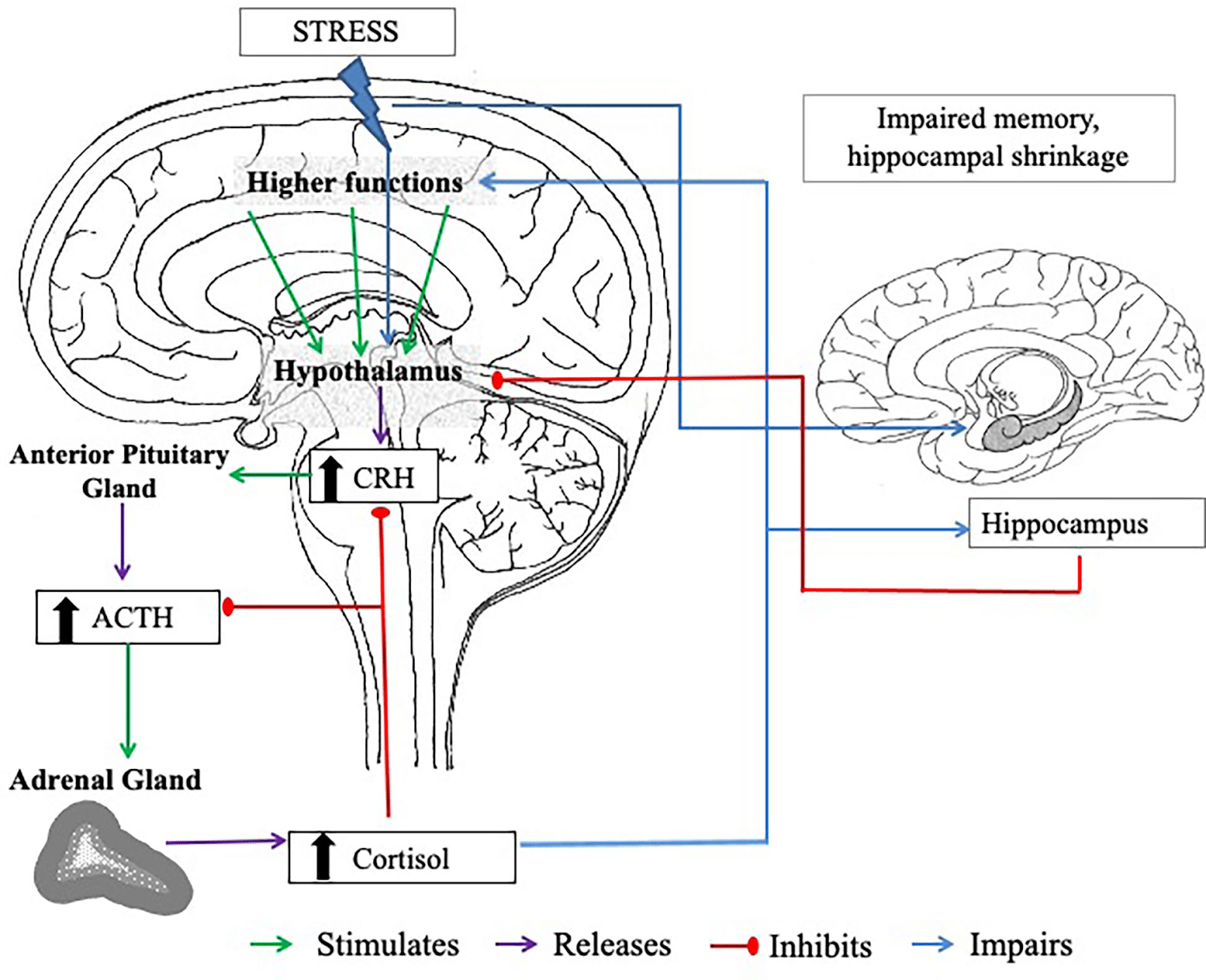Key Takeaways
- Anxiety can significantly impact working memory, making it hard to remember recent information or tasks.
- High cortisol levels due to stress can interfere with memory processing and retention.
- The fight-or-flight response triggered by anxiety can lead to forgetfulness and concentration difficulties.
- Managing anxiety through mindfulness, exercise, and proper nutrition can help improve memory issues.
- A Mission for Michael (AMFM) provides comprehensive and compassionate anxiety treatment plans that combine evidence-based therapies with experiential approaches.
Can Anxiety Affect Your Memory?
When anxiety takes hold, it doesn’t just affect your mood – it can also interfere with your memory. You might find yourself forgetting where you placed your keys or struggling to recall what you needed from the grocery store.
Founded in 2010, A Mission For Michael (AMFM) offers specialized mental health care across California, Minnesota, and Virginia. Our accredited facilities provide residential and outpatient programs, utilizing evidence-based therapies such as CBT, DBT, and EMDR.
Our dedicated team of licensed professionals ensures every client receives the best care possible, supported by accreditation from The Joint Commission. We are committed to safety and personalized treatment plans.
Anxiety and Memory Connection
Anxiety triggers a stress response in the body, which is designed to protect us in dangerous situations. But when it becomes chronic, it can have negative effects on brain function.
- Increased stress hormones like cortisol can disrupt memory processes.
- Anxiety can lead to difficulty concentrating, which hampers memory retention.
- Chronic anxiety can result in a constant state of alertness, exhausting mental resources needed for memory.
Impact on Working Memory
Working memory acts as your brain’s notepad and it’s particularly vulnerable to anxiety. This type of memory is crucial for everyday tasks, such as remembering a phone number long enough to dial it or keeping track of the steps in a cooking recipe. Anxiety can overload working memory and make it difficult to hold onto information.
For example, if you’re feeling anxious about an upcoming presentation, you might find it hard to remember the key points you want to discuss. This is because anxiety diverts mental resources away from memory tasks to focus on the perceived threat, even if that threat is just a feeling of nervousness.
Stress Hormones and Memory
When you’re anxious, your body releases stress hormones, including cortisol. In small amounts, cortisol can improve memory formation by increasing alertness and attention.
But when cortisol levels remain elevated due to chronic anxiety, it can disrupt the communication between neurons in the brain, which is essential for forming and retrieving memories.

Prolonged exposure to stress hormones can even damage parts of the brain involved in memory, such as the hippocampus – a condition known as hippocampal shrinkage. This can cause difficulties in remembering new information and recalling past experiences that persist even after the initial anxiety has passed (image courtesy of Frontiers in Endocrinology).
Fight-or-Flight Response
The fight-or-flight response is an automatic reaction to perceived threats. When you’re anxious, this response kicks in, preparing your body to either fight the threat or flee from it. While this response is helpful in dangerous situations, it can be counterproductive when triggered by everyday stressors.
During the fight-or-flight response, your body prioritizes survival over other functions, including memory. This means that when you’re anxious, your brain might not prioritize storing or recalling information, leading to forgetfulness and difficulty concentrating.
Daily Impacts of Anxiety on Memory
Memory and Daily Tasks
Everyday tasks that require memory can become difficult when anxiety is present. You might find yourself forgetting to complete chores or missing appointments – not because you’re careless, but because anxiety is affecting your memory.
Remembering Instructions
When anxiety affects memory, following instructions can become a daunting task. Regardless if it’s a recipe, a work task, or directions from a friend, anxiety can make it difficult to keep track of steps and details. This can lead to frustration and even more anxiety, creating a cycle that’s hard to break.
Difficulty with Directions
Remembering directions is another area where anxiety can impact memory. You might find yourself getting lost more often or needing to rely on GPS for routes you once knew by heart.
Social Interactions
You might find yourself forgetting names, faces, or details of previous conversations, which can make social situations uncomfortable. This forgetfulness is a result of your brain being preoccupied with anxious thoughts, leaving less room for remembering social cues and information.
Besides that, anxiety can make you hyper-aware of your surroundings, causing you to focus more on how you’re perceived than on the conversation itself – which can further affect your ability to remember details.

Imagine having a conversation with a friend about their upcoming vacation. Due to anxiety, you might forget key details, like the destination or the dates, so it will seem like you’re not paying attention. This can strain relationships, as others might feel undervalued or ignored.
Affect on Personal Relationships
Memory issues caused by anxiety can affect personal relationships. Forgetting important dates, like birthdays or anniversaries, can hurt loved ones’ feelings – even if it wasn’t your intention. Over time, these memory lapses may create tension or misunderstandings.
Strategies for Managing Anxiety
Practical Techniques
These practical techniques can help to alleviate some of the memory burdens caused by anxiety and feel more in control of your day-to-day activities:
- Keep a journal to jot down important information, helping you remember tasks and events.
- Create a structured schedule to reduce stress and improve focus.
- Use reminders or alarms to help you stay on track with appointments and deadlines.
Mindfulness Practices
By focusing on the present moment, mindfulness practices can help reduce anxious thoughts, improve concentration, and boost memory retention. Incorporate yoga, meditation, and breathing exercises into your routine to help you calm your mind and create a more relaxed mental state.

Try practicing deep breathing exercises when you feel anxious. Inhale deeply through your nose, hold your breath for a few seconds, and then exhale slowly through your mouth.
Nutrition and Memory
A balanced and nutrient-rich diet consisting of fruits, vegetables, whole grains, and lean proteins can help support cognitive function and reduce anxiety symptoms. You should include foods rich in omega-3 fatty acids (e.g., fish or walnuts) which are known to support brain health into your diet too.
Exercise and Stress Reduction
Physical activity releases endorphins, which are natural mood boosters, and can help reduce stress levels. Incorporate a mix of aerobic exercises, such as walking, running, or swimming, and strength training into your routine. Aim for at least 150 minutes of moderate exercise per week for improved memory and reduced anxiety.
When to Seek Professional Help
While self-help strategies can be effective, there are times when professional help is necessary. If anxiety and memory issues persist or worsen, it’s important to seek guidance from a mental health professional.
Signs that you may need professional assistance include severe memory problems, difficulty performing daily tasks, or significant distress caused by anxiety. A mental health expert can help you explore treatment options and develop a personalized plan to address your needs.
Seeking help is a sign of strength, not weakness. With professional help, you can improve your quality of life and mental well-being.
Signs of Serious Impact on Memory
When anxiety starts to significantly impact memory, it can manifest in various ways:
- You might notice frequent forgetfulness, such as misplacing items or missing appointments. These lapses can interfere with your daily life and responsibilities.
- If you find yourself unable to remember details from a meeting or a discussion with a friend, it might indicate that anxiety is affecting your memory more profoundly.
If these memory issues persist despite attempts to manage anxiety, it could be a sign that professional help is needed.
Available Treatment Options
Fortunately, there are treatment options available for those struggling with anxiety-related memory issues:
- Therapies such as Cognitive Behavioral Therapy (CBT) focus on identifying and changing negative thought patterns that contribute to anxiety. By addressing these thoughts, individuals can learn to manage their anxiety more effectively and reduce its impact on memory.
- In some cases, medications such as antidepressants, benzodiazepines, or beta-blockers may be prescribed to help manage anxiety symptoms. These medications work differently and can only be prescribed by a healthcare professional.
Expert Anxiety and Memory Care at AMFM

C: At A Mission for Michael (AMFM), we understand that memory issues stemming from anxiety require a nuanced, whole-person approach. Since 2010, our philosophy has been rooted in persistence, connection, and attention to detail – qualities that make our treatment programs uniquely effective.
AT: AMFM facility in Orange County, California.
Our partnership with the Beck Institute, the global leader in Cognitive Behavioral Therapy, sets us apart in delivering cutting-edge treatment. Our clinicians are trained in various therapeutic modalities, from CBT and Dialectical Behavioral Therapy (DBT) to Eye Movement Desensitization and Reprocessing (EMDR).
That’s why we can create comprehensive and compassionate treatment plans that evolve with your progress. What truly distinguishes AMFM is our rejection of the “treatment-resistant” mindset. Instead, we maintain unwavering persistence in finding the right combination of therapies and support for each individual. Our comprehensive approach integrates mental wellness with physical health, including nutrition programs that support cognitive function.
Ready to reclaim your mental clarity and emotional well-being? Contact us at 866-478-4383 for a free, confidential assessment. Let our world-class expertise guide you toward lasting recovery.
Frequently Asked Questions (FAQ)
How does anxiety affect memory recall?
Anxiety can interfere with memory recall by overwhelming the brain with stress and worry – which can make it difficult to focus on and remember information. The stress response triggered by anxiety can also disrupt the communication between neurons, affecting the brain’s ability to retrieve memories.
Can reducing anxiety improve memory?
Yes, reducing anxiety can improve memory. When anxiety levels decrease, the brain has more resources available for processing and retaining information. Techniques like mindfulness, therapy, and lifestyle changes can help reduce anxiety and enhance memory function.
Is forgetting a normal sign of anxiety?
Forgetting is a common symptom of anxiety. When you’re anxious, your brain is focused on perceived threats, leaving less room for storing and recalling information. While occasional forgetfulness is normal, persistent memory issues may indicate the need for professional help.
What’s the difference between working memory and long-term memory?
Working memory is the brain’s temporary storage system, used for tasks like solving problems or remembering instructions. Long-term memory, on the other hand, stores information over extended periods, such as personal experiences or knowledge. Anxiety primarily affects working memory.
What makes AMFM’s approach to anxiety and memory issues unique?
A Mission for Michael (AMFM) combines world-class expertise through our Beck Institute partnership with multiple therapeutic modalities (CBT, DBT, EMDR) and a whole-person wellness approach, including nutrition programs that support cognitive function. Our rejection of the “treatment-resistant” mindset ensures persistent, personalized care for each individual.










